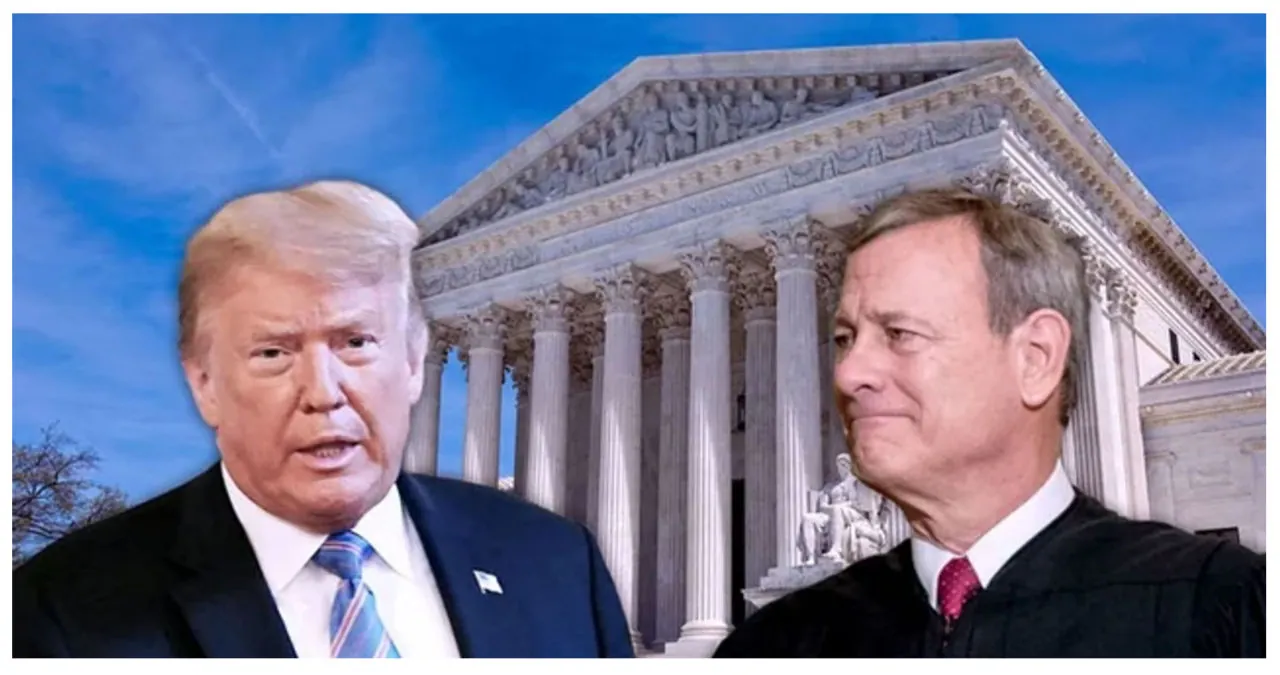Aiexpress – The Supreme Court has taken a significant step by granting certiorari to Donald Trump’s immunity claims in relation to the January 6th trial in Washington. This marks a historic moment as the high court will now review the lower court’s ruling on whether a former president can be prosecuted for crimes committed while in office. However, the final decision on this matter is not expected until April. If the court sides with Trump, it could potentially lead the country down a troubling path.
Exposing the president to lawsuits or prosecutions for the multitude of decisions made in the course of their duty would severely hinder the effectiveness of the presidency. However, it is important to note that those prosecuting Trump do not argue for a broad exposure of presidents to liability for their official decisions. Instead, the issue revolves around the Supreme Court’s 1982 ruling in Nixon v. Fitzgerald, which established that the president is immune from damages liability for acts within the outer perimeter of their official responsibility. It is worth mentioning that the court has never extended this limitation to the president’s responsibility for a crime, nor has it suggested that a president who commits a crime unrelated to their official duties enjoys any form of immunity.
The crucial consideration lies in the court’s assessment of whether engaging in fraud, intimidation, and violence to overturn a lost election could be deemed as part of a president’s “official responsibilities.” This is a belief held by Trump, who asserts that he would enjoy immunity even if he employed Seal Team Six to eliminate political adversaries. According to him, the sole remedy against a president would be impeachment and conviction, which he could evade by securing the support of just one-third of the Senate.
The court needs to exercise caution when approaching the Colorado ruling that disqualified Trump from the state ballot. It is highly likely that the court will overturn this decision, which would hold significant political weight, if not legal. Such an action would portray the Supreme Court as humble in its authority and committed to upholding the people’s right to elect their leaders.
If the court were to rule in favor of disqualification and immunity for Trump, it would severely damage the court’s already tarnished reputation and pose a threat to the future of our democracy.
It would be absolutely abominable to grant the president absolute immunity from criminal prosecution, and it is highly likely that the majority of the court will reject such a notion. However, if even one justice, perhaps someone like Justice Thomas, were to endorse this view, it would provide a thin veil of acceptability to an utterly abhorrent idea.
Trump’s perspective would essentially grant the president absolute power that he could exercise as long as he maintained control over a small, most likely hand-selected, group in the Senate. Is it possible for us to vote out such a dictator? It’s highly unlikely. Moreover, wouldn’t a president like that disregard our votes with ease? Shouldn’t we anticipate false allegations of miscounts, the confiscation of voting machines, and the suppression of votes? What about the emergence of fraudulent electors?
Absolute presidential immunity from criminal prosecution would be abominable, and it is highly likely that a majority of the Court will reject it. However, if a single justice, such as Justice Thomas, endorses this view, it will give a semblance of acceptability to a deeply troubling idea. If a majority of justices even comes close to supporting it, the court could lead America down a dangerous path towards a dictatorship, with a predatory president at the helm and a small group of Senators and Congress members perpetuating it.
The court has previously acknowledged the need to approach this issue cautiously, carefully considering the constitutional significance versus the risk of encroaching on essential presidential powers. In the situation involving Donald Trump, this would entail determining that any immunity shielding the president does not extend to attempts to retain power through deceit or violence. Such actions pose a grave threat to fundamental constitutional principles, without overstepping any powers that we should desire a president to possess. By adopting this limited perspective, the court could decisively address Trump’s actions without compromising the future of democracy.

